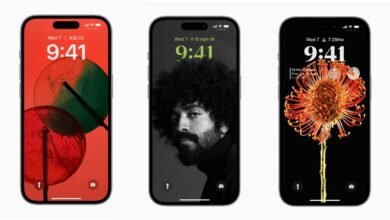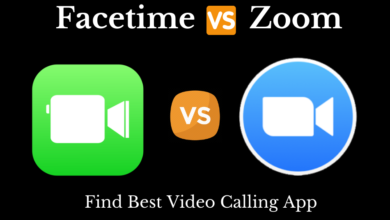
Finding the Best Laptops for creators, coders, and casual users can be challenging with so many options on the market. Whether you’re a graphic designer needing color-accurate displays, a developer requiring powerful processing, or an everyday user looking for reliability, the Best Laptops can significantly boost productivity and enjoyment. This Best Laptops explores top-performing models across different categories, helping you choose based on performance, display quality, battery life, and budget.
The best laptops for creators, coders, and casual users vary greatly depending on specific needs. Creators demand high-resolution screens and strong GPUs, coders prioritize fast processors and comfortable keyboards, while casual users benefit from long battery life and lightweight designs. By understanding these key differences, you can invest in a Best Laptops that perfectly matches your workflow and lifestyle. Let’s dive into the top recommendations for each category.
Best Laptops for Creators, Coders, and Casual Users
Best Laptops for Creators
Creators including graphic designers, video editors, and digital artists require laptops with high-resolution displays, powerful GPUs, and fast processors. The Apple MacBook Pro (M3 Max) stands out as a top choice, offering a stunning Liquid Retina XDR display, exceptional color accuracy, and industry-leading performance. Its M3 Max chip handles 4K video editing and 3D rendering effortlessly, making it ideal for professionals. For Windows users, the ASUS ProArt Studiobook 16 OLED is a fantastic alternative. Its 16-inch 4K OLED display covers 100% of the DCI-P3 color gamut, ensuring precise color reproduction. Paired with an NVIDIA RTX 4070 GPU and an Intel Core i9 processor, it excels in demanding creative workloads.
Best Laptops for Coders and Developers
Programmers need Best Laptops with fast processors, ample RAM, and comfortable keyboards for long coding sessions. The Lenovo ThinkPad X1 Carbon Gen 11 is a favorite among developers due to its legendary keyboard, lightweight design, and strong performance with Intel’s latest processors. Its Linux compatibility also makes it a great choice for open-source enthusiasts. The MacBook Pro 14-inch (M3 Pro) is another excellent option, especially for developers working with macOS-exclusive tools like Xcode. The M3 Pro chip delivers outstanding efficiency, and the 120Hz ProMotion display ensures smooth scrolling through lines of code.
Best Laptops for Casual Users
Casual users prioritize battery life, portability, and ease of use. The MacBook Air (M2) is a standout choice, offering a sleek design, all-day battery life, and a brilliant Retina display. Its fanless design ensures silent operation, perfect for everyday tasks like web browsing and document editing. Windows users will appreciate the Microsoft Surface Laptop 5, known for its premium build quality and vibrant PixelSense touchscreen. The Acer Swift 3 is another great budget-friendly option, featuring a lightweight aluminum chassis and solid performance with AMD Ryzen processors.
Key Considerations When Choosing a Laptop
Processor, RAM, and GPU
Performance is the backbone of any laptop, determining how smoothly it runs applications. For creators, a powerful multi-core processor (such as Intel Core i9 or Apple M3 Max) and a dedicated GPU (like NVIDIA RTX 4070 or AMD Radeon Pro) are essential for rendering videos, 3D modeling, and graphic design. Coders benefit from fast CPUs (Intel i7/i9 or AMD Ryzen 7/9) and at least 16GB RAM for compiling code and running virtual machines. Casual users can opt for entry-level processors (Intel Core i5 or AMD Ryzen 5) with 8GB RAM for everyday tasks like browsing and streaming.
SSD vs. HDD and Capacity
Solid-state drives (SSDs) are a must for fast boot times and quick file access. Creators should opt for 1TB+ NVMe SSDs to store large project files. Coders benefit from 512GB-1TB SSDs, while casual users can manage with 256GB-512GB. Some laptops offer expandable storage, which is useful for future upgrades. Avoid HDDs unless budget constraints demand them, as they are significantly slower.
Resolution, Color Accuracy, and Size
The display significantly impacts user experience, especially for creators who need high-resolution (4K or QHD) screens with 100% sRGB or DCI-P3 color gamut for accurate color reproduction. Coders often prefer larger screens (15-17 inches) with high brightness (400+ nits) for better readability and multitasking. Casual users may prioritize Full HD (1920×1080) IPS panels for crisp visuals without excessive battery drain. Touchscreens and OLED displays are additional premium options for enhanced usability.
Longevity and Efficiency
Battery life is crucial for users who work on the go. Casual users should look for 10+ hours of battery life (e.g., MacBook Air M2, Acer Swift 3). Coders need at least 6-8 hours under heavy workloads, while creators often require plugged-in performance due to power-hungry tasks. Laptops with energy-efficient processors (Apple M-series, Intel Evo-certified) tend to offer better battery optimization.
Weight and Build Quality
Portability is key for travelers and remote workers. Ultrabooks like the MacBook Air (2.7 lbs) and Dell XPS 13 (2.6 lbs) are ideal for casual users and coders who prioritize lightweight designs. Creators may need slightly heavier laptops (4-5 lbs) to accommodate powerful hardware, such as the MacBook Pro 16-inch (4.7 lbs) or ASUS ProArt Studiobook (4.4 lbs). Build materials like aluminum or magnesium alloy enhance durability without adding excessive weight.
Keyboard and Trackpad
A comfortable keyboard is vital for coders and writers. Look for backlit keys, good key travel (1.5mm+), and a responsive layout (e.g., ThinkPad keyboards). Creators may prefer precision touchpads or use external drawing tablets. Casual users should ensure the keyboard is comfortable for long typing sessions.
Upgradability and Future-Proofing
Some laptops allow RAM and storage upgrades, while others (like MacBooks) have soldered components. If you plan to keep your laptop for years, consider future-proof specs (16GB+ RAM, latest-gen processors).
Read More: Kitchen Tech That Saves Time and Boosts Flavor
Conclusion
Choosing the Best Laptops for creators, coders, and casual users ultimately depends on understanding your specific needs and workflow. Creators should prioritize high-performance GPUs and color-accurate displays, while coders need powerful processors and comfortable keyboards for extended programming sessions. Casual users, on the other hand, will find the most value in balanced machines offering long battery life and portability. By carefully considering factors like performance, display quality, and build design, you can select a laptop that truly enhances your productivity and user experience.
The Best Laptops for creators, coders, and casual users represent significant investments in your digital life, whether for professional work or personal use. With rapid advancements in Best Laptops technology, today’s options offer unprecedented power and versatility across all price ranges. By matching your specific requirements with the right combination of hardware and features, you’ll enjoy seamless performance for years to come. Remember that the Best Laptops isn’t necessarily the most expensive one it’s the one that best fits your unique needs and working style.
FAQs
What is the Best Laptops for video editing?
The MacBook Pro (M3 Max) and ASUS ProArt Studiobook 16 OLED are top choices for video editing due to their high-performance GPUs and color-accurate displays.
Which Best Laptops for programming?
The Lenovo ThinkPad X1 Carbon and MacBook Pro 14-inch (M3 Pro) are excellent for coding, offering fast processors and comfortable keyboards.
What should casual users look for in a laptop?
Casual users should prioritize battery life, portability, and ease of use, making the MacBook Air (M2) and Microsoft Surface Laptop 5 great options.
Are gaming laptops good for creators?
Yes, gaming laptops like the ASUS ROG Zephyrus G14 offer powerful GPUs that can handle creative tasks, though they may be bulkier than traditional creator laptops.
How much RAM do coders need?
Most coders will benefit from at least 16GB of RAM, though those working with virtual machines or large datasets may require 32GB or more.











